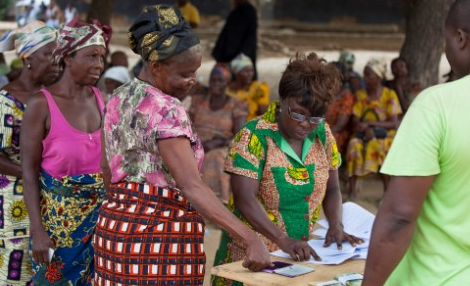
936,000 people benefit from LEAP since it’s inception in 2008
A total of 936,000 individuals in 213,044 households across 6,594 communities have benefitted from the Livelihood Empowerment Against Poverty (LEAP) programme since its introduction in 2008..
Additionally, 93,778 households in 1,210 communities are being enrolled onto the programme.
The LEAP is a flagship government social intervention programme intended to reach 2.2 million beneficiaries, representing 8.4 per cent of the country’s population, who are considered extremely poor or vulnerable.
A Deputy Director of the LEAP under the Ministry of Gender, Children and Social Protection, Mr William Niyuni, made this known at a media encounter to expose the programmes and projects of the ministry to the media in Accra.
Second phase
According to the director, another 150,000 households would be targeted to benefit from the second phase of the programme, LEAP II, which is being developed by the government and its development partners and would focus on cash transfers, productive inclusion and graduation or exit.
Programme
The LEAP payment is made every other month and involves GH¢64 for a single beneficiary household, GH¢76 for a household of two beneficiaries, GH¢88 for a household with three beneficiaries and GH¢106 for households with four or more beneficiaries.
Mr Niyuni explained that for every GH¢1 payment made, the multiplier effect on the community was GH¢2.50; all beneficiaries were enrolled onto the National Health Insurance Scheme (NHIS), while payment was effected through the Ghana Interbank Payment and Settlement System (GIPSS) to reduce risk and promote greater efficiency, transparency and accountability.
Beneficiaries include orphans and vulnerable children, those aged beyond 65 and without support, those with severe disabilities and productive capacity, as well as extremely poor pregnant mothers with children below one year.
Objectives
Mr Niyuni said the broad objective of the programme was to reduce poverty, increase consumption and promote access to services and opportunities among the poor and the vulnerable.
He said so far chief executives and coordinating directors in 102 assemblies had been given orientation to appreciate the programme.
The director further stated that there had been improved school enrolment and retention of pupils in LEAP households, as well as improvement in nutrition and food consumption.
“The LEAP programme has made and continues to make an impact on its target beneficiaries, as evidenced from independent research findings,” he stressed.
For her part, the Minister of Gender, Children and Social Protection, Ms Otiko Afisa Djaba, said the ministry would intensify sensitisation of and communication on the programme, especially at the community level.
The ministry would equally build stronger communication platforms among key stakeholders, including ministries, departments, agencies, assemblies, the media and civil society organisations, she added.
